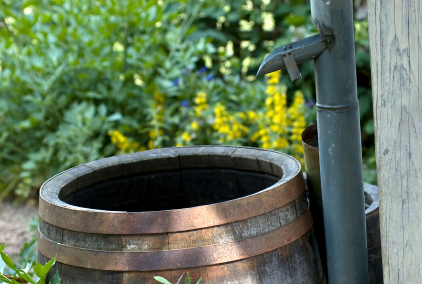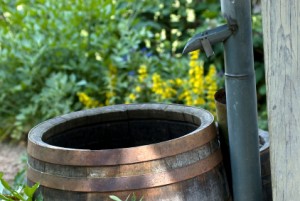
Those that do not have access to their own water sources run the risk of being completely dependent on the city’s or town’s municipal water supply. When that supply is consumed or contaminated, emergency contingency plans must be put into place to find another water source. Learning how to be less dependent on the local water supply will ease this burden and, in the process, make you more self-reliant [1].
Having knowledge on how to harvest water through means of rainwater catchment systems [2] is a great place to begin this path towards self-reliance. Some suggested low-cost options are:
- Collapsible water containers or 5-gallon buckets
- Rain harvesting containers or barrels
- Rainwater downspout routed to water tanks by PVC pipes
- Having knowledge beforehand on where local streams, ponds, and rivers are located.
In addition to knowing how to harness water, having knowledge on how to appropriately treat water with water filtration systems, solar stills, and gravity filters would also be a proactive approach to staying on top of this issue. To learn how to treat water using chemical, distillation or through the boiling method, click here [3].
Store Your Water For a Rainy Day
Water should be stored ahead of time before any type of emergency threatens your local area. A short-term water supply of at least 2-weeks worth of water is recommended by most emergency organizations. Typically, bottled water is suggested, however, if you plan on storing tap water, ensure that it is purified and ask public health authorities or your water provider whether tap water should be used and how to treat it.
Your emergency water supply should be stored using the following tips.
- Keep emergency water in a cool, dark place in your home, each vehicle, and your workplace.
- It’s possible to keep water in food-grade containers intended for water storage. Containers must be thoroughly washed, sanitized, and rinsed. Only store clean, ready-to-drink water that has already been treated.
- Plastic soft drink containers can be used in a pinch. Clean and sanitize containers before they are used.
Note: Do not use milk or juice containers for storing water. Even if you try to thoroughly clean these plastic containers, leftover sugars and proteins provide perfect places for bacteria to grow.
If outside water catchment systems are being used, learn more about which catchment system [4] is best for your home. In addition, follow these tips provided by a rainwater harvesting community to ensure a quality water supply:
- Before you start, conserve, conserve, conserve. Cutting your water usage will reduce the size of the tank you need and save you money.
- Remember – water is very heavy. (i.e., 500 gallons weighs over 2 tons!)
- Make sure the tank is easy to access and maintain.
- The tank should be opaque or darker, either upon purchase or painted later, to inhibit algae growth.
- For potable systems, storage tanks must never have been used to store toxic materials.
- Tanks must be covered and vents screened to discourage mosquito breeding.
- Tanks used for potable systems must be accessible for cleaning.
- Install first-flush and screening devices prior to water reaching the tanks to keep it as fresh and clean as possible.
- Keep tops of tanks free of debris to make it harder for animals to reach the top of the tank.
- Buried tanks should be located in well-drained soil and location.
- Water weighs about 8 pounds per gallon so plan your pad, if any, before installing your tank.
- Plan where storage tank overflow should be piped or directed to. Keep it away from underneath your holding tank to prevent pad erosion and to keep animals away.
- Water is a finite resource and essential to life, so why not be prepared. Keep some alternative water treatment sources on hand in case of a water shortage and begin learning ways to set yourself apart from those who are dependent on local water supply.
Water is a finite resource and essential to life. Learning to be more self-reliant and creating a water supply to depend on if a water shortage occurs is a proactive approach to dealing with this pressing issue. Ensure that your family has the water they need to maintain health and if possible, to perform daily tasks.
